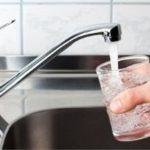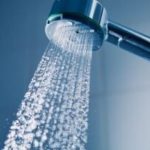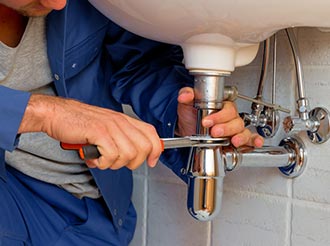
Long Term Water Safety Plan
With fears of viruses and bacteria at an all-time high, homeowners must develop and maintain a water safety plan to ensure the water entering their home is free of contaminants that could make their family sick.
A water safety plan entails accessing your home’s clean water needs, which means determining the risk individual household members have for developing complications from water contamination, and then, developing a plan that fits your needs and budget.
A comprehensive plan involves taking into account drinking water, water for cooking, water for cleaning, and more. A long term water safety plan for a household can give homeowners peace of mind that their families are safe from water contamination.
Importance of Safe Drinking Water
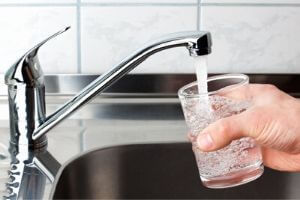 Access to safe drinking water is arguably the most essential and basic human necessity. Filtering drinking water not only lessens a household’s chance of being exposed to water-borne diseases such as Hepatitis A, Cholera, and Typhoid, but it also helps the body naturally get rid of toxins.
Access to safe drinking water is arguably the most essential and basic human necessity. Filtering drinking water not only lessens a household’s chance of being exposed to water-borne diseases such as Hepatitis A, Cholera, and Typhoid, but it also helps the body naturally get rid of toxins.
Polluted water can be deadly, and now more than ever, it’s imperative individuals keep their immune systems working correctly and lessen their chances of contracting any diseases.
While many cities have a central filtration system for all city water, there are many impurities that may still make their way into your home, which is why a safety plan is so critical.
Why Everyone Needs Safe Water for Personal Hygiene
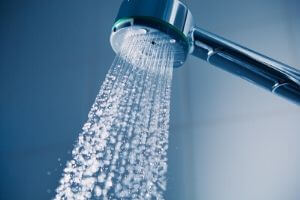
Clean water is not only necessary for drinking but personal hygiene as well. Dirty shower water can make one’s clothes dirty AND lead to disease. Unfiltered water can contain chlorine.
Chlorine can be inhaled through the steam in a hot shower and absorbed through the skin. Chlorine can cause adverse side effects such as dry and itchy skin and an irritated scalp.
Showering in chlorinated water can also present additional risks for pregnant women, including stillbirths, premature delivery, and other congenital disabilities. Therefore, it is imperative to access your family’s risk for developing complications from chlorinated water and determine if filtration for all water entering the home is necessary.
Why Water Safety Is Crucial
 Water entering your home can be filtered in a variety of ways. If you are not concerned about filtering all water that comes into the home but are concerned with drinking water and water used for cooking, consider installing a faucet-mounted or under-sink filter, which will ensure tap water is filtered and safe to consume.
Water entering your home can be filtered in a variety of ways. If you are not concerned about filtering all water that comes into the home but are concerned with drinking water and water used for cooking, consider installing a faucet-mounted or under-sink filter, which will ensure tap water is filtered and safe to consume.
Shower filters are also available in the form of filtered showerheads or inline portable filters which are installed between the existing showerhead and the water supply line.
If you are concerned about chlorine contamination and want peace of mind when it comes to all of the water entering your home, consider installing a whole-home water filter. However, be aware that the installation of a whole-home water filter entails connection to the main water line, which should be handled by a professional plumbing company.
Consider developing a water safety plan for your home to make safety a priority. First, determine the level of water filtration you feel your household needs depending on your concerns as well as your budget. Then, set to work installing a filtration system that is right for you.
If you opt for a whole-home filtration system, contact a professional plumber to help install this system and protect your entire home from water contamination.
Let a Local Plumber Help You Decide
S and J Plumbing is a family-owned Arlington Heights company committed to bringing residents high-quality plumbing expertise at an affordable rate. With upfront pricing and zero upselling, you can be confident they will only recommend services your home needs, like drain cleaning or clogged toilet repairs. Plumbing issues can be a huge inconvenience so be sure you have a plumbing company you can trust.
Distribution Links +
- lubbocks969thebull.com
- fox21delmarva.com
- wboc.com
- tulsacw.com
- erienewsnow.com
- weny.com
- 1007thescore.com
- doublet973.com
- 937theeagle.com
- fox34.com
- lubbockcw.com
- magic1065.com
- mylubbocktv.com
- oldies977lubbock.com
- 1077yesfm.com
- ktvn.com
- wrcbtv.com
- wfmj.com
- htv10.tv
- snntv.com
- central.newschannelnebraska.com
- metro.newschannelnebraska.com
- southeast.newschannelnebraska.com
- midplains.newschannelnebraska.com
- northeast.newschannelnebraska.com
- plattevalley.newschannelnebraska.com
- panhandle.newschannelnebraska.com
- rivercountry.newschannelnebraska.com
- wrde.com
- telemundonuevomexico.com
- wfxg.com


